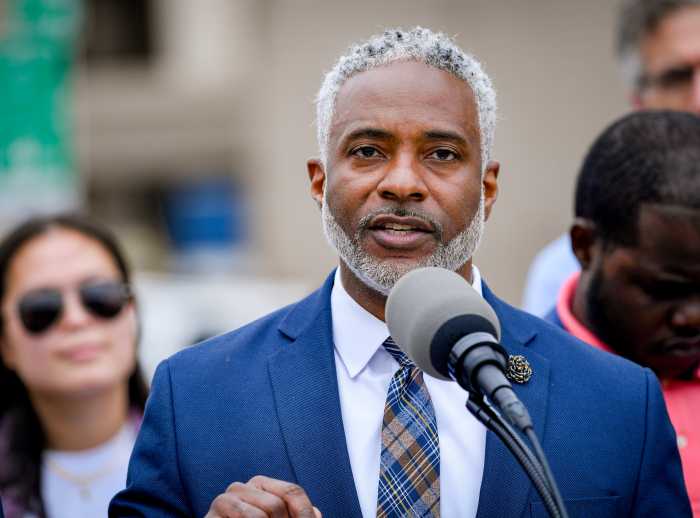At one point during last Thursday’s City Council hearing on the New York City Housing Authority and security cameras, Council Speaker Christine Quinn asked John Rhea, the authority’s commissioner, to commit to providing better accountability on how NYCHA is using the capital funding it gets from the Council. Rhea hedged, saying he needed more “clarity” from the Council. Stunned, Quinn laughed, and said she didn’t understand. It was a telling moment — pointing to NYCHA’s issues around transparency.
Eventually, Rhea relented, saying NYCHA would give the Council quarterly updates on how it’s spending these capital funds. That’s a major step forward for a city agency that has come under fire for sitting on $1 billion in funding that should be going to repairs and safety improvements.
Daily News exposés have blown the cover off NYCHA’s dysfunction. The News reported the authority has $42 million earmarked for installing security cameras, but which instead has gathered dust for eight years.
Councilmembers testified at the hearing that their housing developments critically need cameras to combat crime and gun violence.
James Sanders, who represents the Rockaways, said that, over multiple years, he allocated $7 million total for cameras and security for his NYCHA developments. But he stopped, he said, after seeing zero results, feeling the money was going “into a black hole.”
In his defense, Rhea said NYCHA tenants approved his “layered access” plan, which includes better front-door locks, cameras and better lighting. But it seems to us Rhea should instead be implementing security improvements more incrementally, as the money comes in — rather than studying, designing, waiting…and ultimately not doing enough, rapidly enough.
The News has called for the ouster of Rhea and NYCHA’s two other highly paid commissioners, Margarita Lopez and Emily Youssouf. And the mayor has responded, saying he now wants to eliminate Lopez’s and Youssouf’s paid positions and move to a nonpaid board, similar to what exists at other city agencies. As of now, Lopez and Youssouf remain on NYCHA’s board, each with a nearly $200,000 annual salary — plus paid drivers — since changing the authority’s structure may require state action.
Councilmember Rosie Mendez, who chairs the Council’s Public Safety Committee, feels the authority actually has been improving. For example, instead of having a backlog of 500,000 repair requests from residents, that number has dropped to around 300,000. Percentage-wise that’s impressive — but the number is still staggering, and it simply shouldn’t take years to get basic repairs.
Also, in a smart move, NYCHA “federalized” 21 of its developments last year, becoming eligible for an immediate $400 million in federal money, plus up to $75 million in federal funds annually forever.
Mendez also told us that having paid board members at NYCHA is part of the reason for any of its successes.
Of course, Lopez held the East Village City Council seat before Mendez and was her political mentor. In fact, they also live in the very same East Village walk-up building. Let’s hope Mendez’s association with Lopez is not coloring — even ever-so slightly — her judgment of an agency that must be looked at with a very critical eye.
Meanwhile, Borough President Scott Stringer has issued a report, “Reforming NYCHA,” that blasts the agency for “managerial dysfunction” and having an overpaid board, while senior staff positions are left unfilled. He also supports having an all-volunteer board.
As a Bronx pastor said at last week’s hearing, the mayor has focused on things like transportation and public safety, but NYCHA remains “the elephant in the room.”
It’s time the administration address the NYCHA crisis with the same vigor it has put into other initiatives.





































